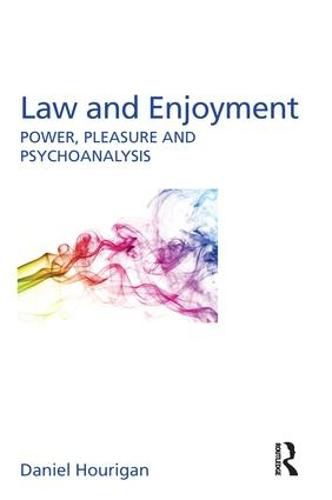Readings Newsletter
Become a Readings Member to make your shopping experience even easier.
Sign in or sign up for free!
You’re not far away from qualifying for FREE standard shipping within Australia
You’ve qualified for FREE standard shipping within Australia
The cart is loading…






This book advocates, and develops, a critical account of the relationship between law and the largely neglected issue of ‘enjoyment’. Taking popular culture seriously - as a lived and meaningful basis for a wider understanding of law, beyond the strictures of legal institutions and professional practices - it takes up a range of case studies from film and literature in order to consider how law is iterated through enjoyment, and how enjoyment embodies law. Drawing on psychoanalytic theory, this book addresses issues such as the forced choice to enjoy the law, the biopolitics of tyranny, the enjoyment of law’s contingency, the trauma of the law’s symbolic codification of pleasure, and the futuristic vision of law’s transgression. In so doing, it forges an important case for acknowledging and analyzing the complex relationship between power and pleasure in law - one that will be of considerable interest to legal theorists, as well as those with interests in the intersection of psychoanalytic and cultural theory.
$9.00 standard shipping within Australia
FREE standard shipping within Australia for orders over $100.00
Express & International shipping calculated at checkout
This book advocates, and develops, a critical account of the relationship between law and the largely neglected issue of ‘enjoyment’. Taking popular culture seriously - as a lived and meaningful basis for a wider understanding of law, beyond the strictures of legal institutions and professional practices - it takes up a range of case studies from film and literature in order to consider how law is iterated through enjoyment, and how enjoyment embodies law. Drawing on psychoanalytic theory, this book addresses issues such as the forced choice to enjoy the law, the biopolitics of tyranny, the enjoyment of law’s contingency, the trauma of the law’s symbolic codification of pleasure, and the futuristic vision of law’s transgression. In so doing, it forges an important case for acknowledging and analyzing the complex relationship between power and pleasure in law - one that will be of considerable interest to legal theorists, as well as those with interests in the intersection of psychoanalytic and cultural theory.